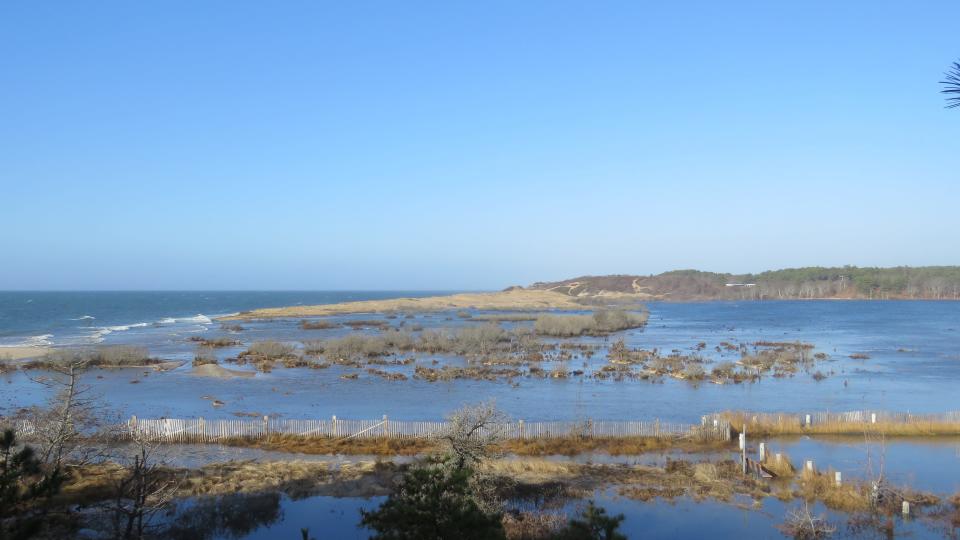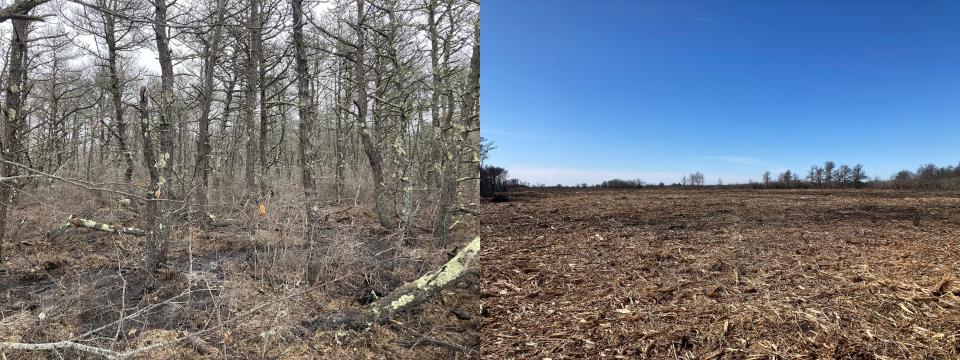'A landslide in slow motion': Why scientists are interested in Wellfleet's Duck Harbor
The scene at Duck Harbor in Wellfleet has changed dramatically in a short stretch of time. For the past three years or so, robust high tides have been washing inland, transforming the landscape.
These repeated overwashes are unusual.
"Normally with overwash events, the breach is healed by sand washing in," said Katie Castagno, director of the Land-Sea Interaction Program at the Center for Coastal Studies in a phone interview. "That's not happening at Duck Harbor."
The continuing Duck Harbor dynamic presents "a golden opportunity to get data to study the effects of overwashes on coastal vegetation," Mark Borrelli, director of the Seafloor Mapping Program at the Center for Coastal Studies said in a release from the center. "It’s like watching a landslide in slow motion. We get to slow down nature and watch it happen.”

Scientists from the Center for Coastal Studies and the Cape Cod National Seashore continue to monitor the changes at Duck Harbor. Over the summer, Castagno and her team "began assembling a valuable data set, taking more than 200 sediment cores," according to the Center for Coastal Studies.
The Duck Harbor research may provide valuable insights "that can be applied in marsh restoration projects elsewhere," according to the Center for Coastal Studies, including the project currently underway at the Herring River in Wellfleet.
Castagno called the changes at Duck Harbor "geology in action." And this action is a regularly-scheduled event.
Generally, overwash situations are associated with storms and can be tricky to predict, but scientists know that certain high tides at Duck Harbor will likely produce an overwash. That means they can plan to be in the field, and often research can be conducted in non-storm conditions.

Access to the area is also easier than it was a few years ago. The saltwater intrusion killed trees and other plants behind the beach, and last year, the Seashore began a clearing and mulching project in the area that removed 80 acres of dead vegetation. The project, managed by Ducks Unlimited, is continuing this winter, with an additional 40 acres set to be cleared and mulched.
Castagno said she was cheered to see saltmarsh vegetation already appearing in the cleared and mulched area.
"Nature persists," she said. "As long as Duck Harbor stays open, that's all you really need for saltmarsh vegetation to grow."
Eric Williams, when not solving Curious Cape Cod mysteries, writes about a variety of ways to enjoy the Cape, the weather, wildlife and other subjects. Contact him at ewilliams@capecodonline.com. Follow him on X: @capecast.
Thanks to our subscribers, who help make this coverage possible. If you are not a subscriber, please consider supporting quality local journalism with a Cape Cod Times subscription. Here are our subscription plans.
This article originally appeared on Cape Cod Times: Cape Cod coastal change: Duck Harbor offers rare science opportunity

